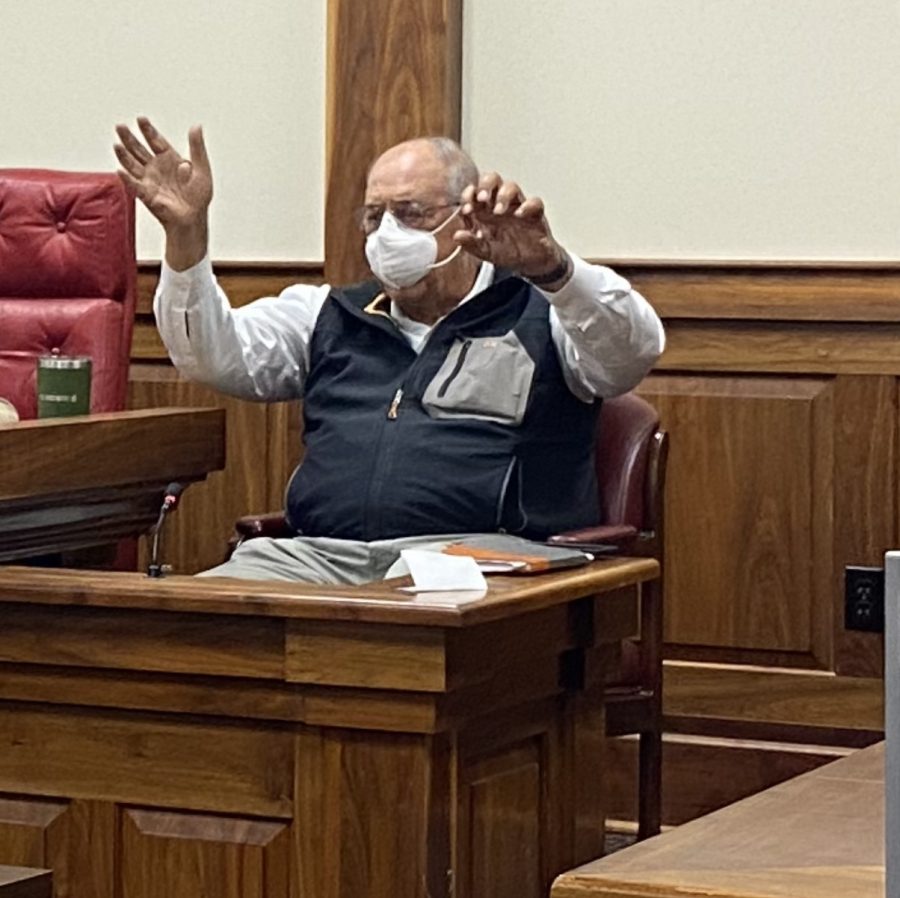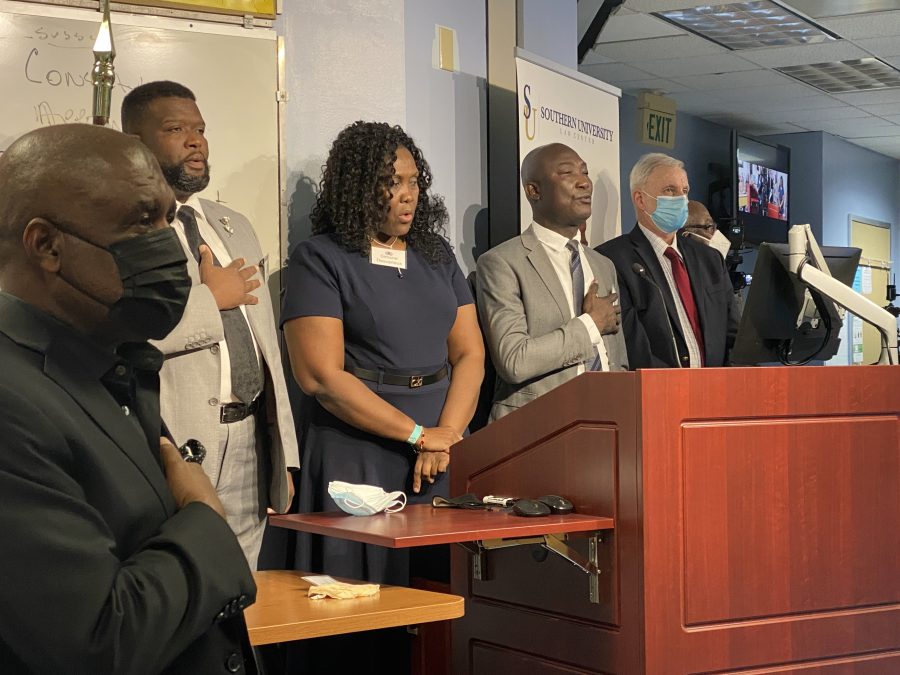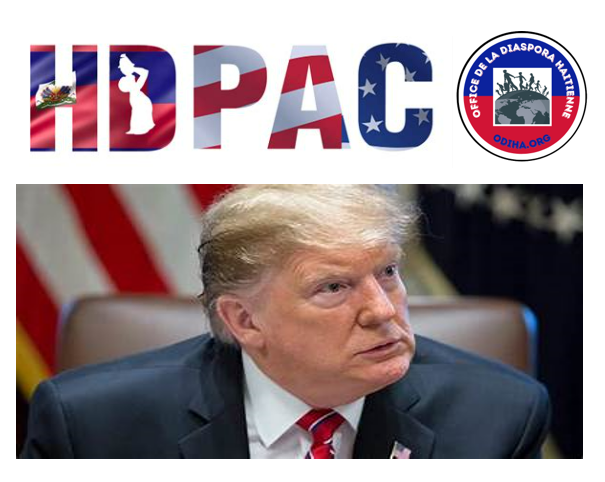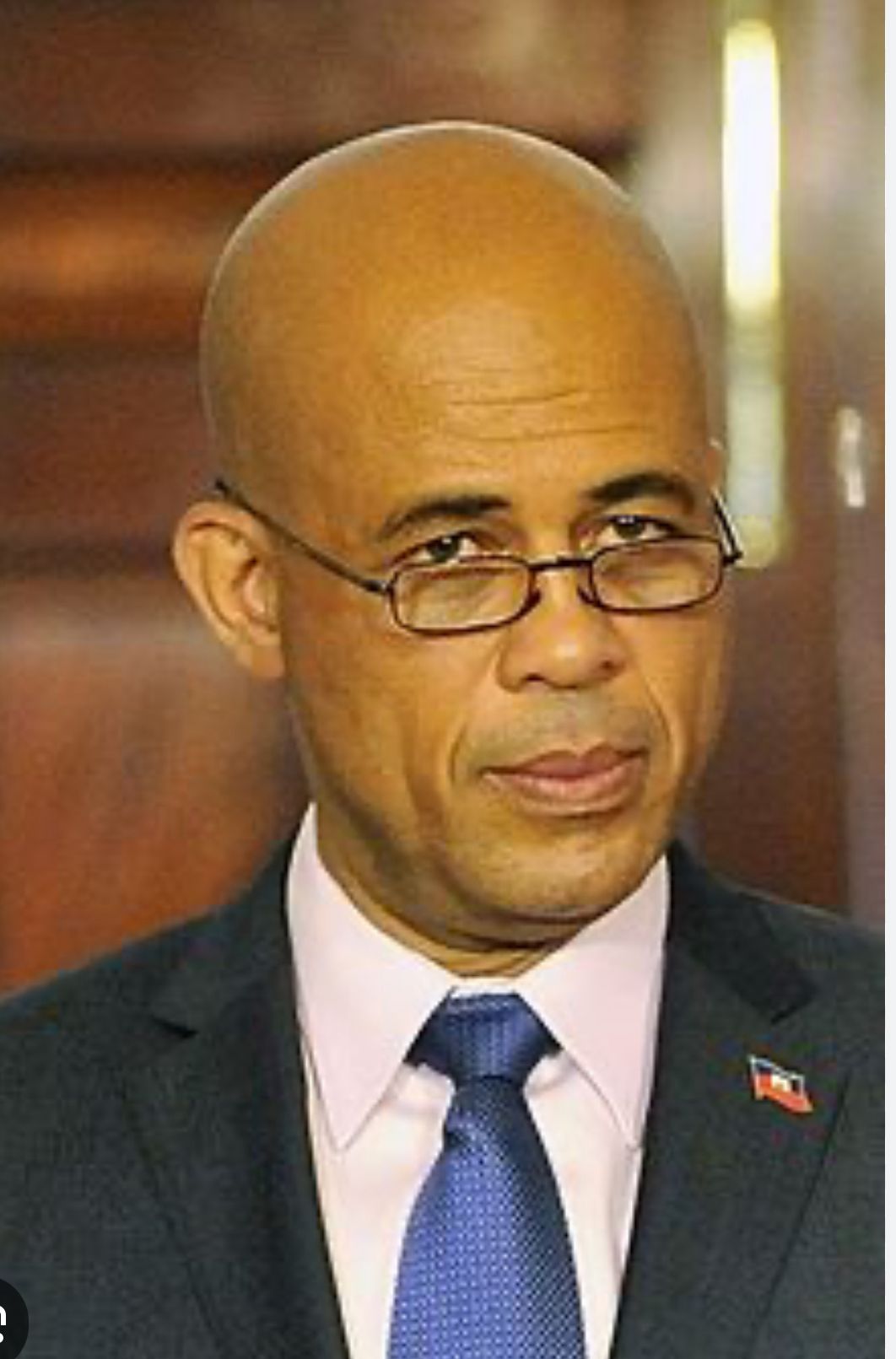|
Getting your Trinity Audio player ready...
|
Truenewsblog – January 26, 2022
|HDPAC| Baton Rouge| Louisiana Unity Accord| Haiti| Myriam Fetiere|
By: Jocelyne Desrosiers:
Baton Rouge, Louisiana – “If you can bring them (the Accords) all together, I should come to you for diplomacy advice,” said Kenneth Merten the U.S. Charge d’Affaires to retired Gen. Russel L. Honoré who facilitated the five days Haiti Unity summit at Southern University Law Center in Baton Rouge Louisiana.
During a telephone call to Kenneth Merten to announce that the 9 political factions that participated in the summit have merged into one group, now called the Louisiana Unity Accord, Mr. Merten who has been in and out of Haiti for decades as an ambassador was very surprised. He did not believe it could be done, because in general, Haitians are very divided when it comes to politics.

The Haitian Diaspora Political Action committee in conjunction with several organizations from the Haitian diaspora cooperated to make the Haiti Unity Summit a huge success. According to the organizers, the goal was to bring all the political factions together to form one broad accord with national consensus. 11 Accords were invited including the Montana Accord and Ariel Henry. 9 of the eleven decided to participate. The summit held at Southern University Law Center, Nelson Mandela Center for Public Policy was facilitated by retired U.S. General Russel L. Honoré. The summit lasted five days.
The first day, the groups met each other and presented their positions publicly. The organizers were not involved in the process of negotiation. Aided by trained mediators and facilitators, the different factions were able to join forces and combined the nine Accords to one. This was a monumental breakthrough according to Dr. Georges J. Casimir, the president of HDPAC. “Considering that for months none of the political factions had been able to meet, let alone agree on anything. Baton Rouge was a safe neutral ground where representatives of the Accords could work without fear of being shot or killed.”
The second day, the 9 voting delegates of the new Louisiana Unity Accord had to decide whether they should proceed according to Haiti’s constitution or by appointment as all the other Accords called for. In a unanimous 9-0 decision, the delegates decided to proceed by appointment, meaning the government of transition will be a government of broad national consensus.

Once they have made that decision, then they have to vote to consider the kind of government they should have. They considered two types, a government headed by a president and a prime minister, or a government headed by five different men, called a collegial executive branch. They decided that a government headed by a president and a prime minister will be more effective and cost efficient and in alignment with the constitution.
The third day they considered candidates for the posts. After two days of discussions and deliberation they nominated economist Fritz Alphonse Jean as president of the transitional government and Myriam Fetiere as prime minister. On the fourth day, the delegates called Mr. Jean and Ms. Fetiere to inform them of their decisions. Mr. Jean as well as Ms. Fetiere was very honored and accepted the nominations.

During an interview, Mr. Emmanuel Roy, Executive Director of HDPAC who oversaw the planning of the summit said “the goal of the summit was reached. We set out to prove to the world that Haitians can unite towards one goal. We did that. 9 accords came to the summit, and one came out. Now, instead of having a dozen accords, we have only three accords: Montana, Louisiana, and Ariel Henry. The best way to resolve this issue is for all three accords to merge together, to fuse together.”
The international community applauded the effort and welcomed the Louisiana Accord. The U.S. State Department, the French, Canadian ambassadors to Haiti as well as the House Haiti Caucus in Congress have met or plan to meet with the leadership of the Louisiana Unity Accord. One notable fact about the Louisiana accord is that it is the only accord that has the largest representation of women which represents greater than 52% of the Haitian population.
On February 7, 2022, the term of office of Ariel Henry, the current prime minister of Haiti would have ended, and the people are demanding that he steps down and be replaced by a government of transition to organize elections. Mr. Henry has been implicated in the murder of Jovenel Moise who served as president of Haiti from 2017 to July 7, 2021, the night he was assassinated as his residence in the hills of Port-au-Prince, Haiti’s capital. Many said that Henry is clinging to power because he is afraid of being arrested as a co-conspirator in Moise’s murder.
It is not clear what will happen on February 7. Mr. Ariel in several tweets last week made it clear that the next president who enters the Haitian palace will be someone elected by the people, and it looks like Mr. Henry is being supported by the CORE Group (USA, France and Canada).






